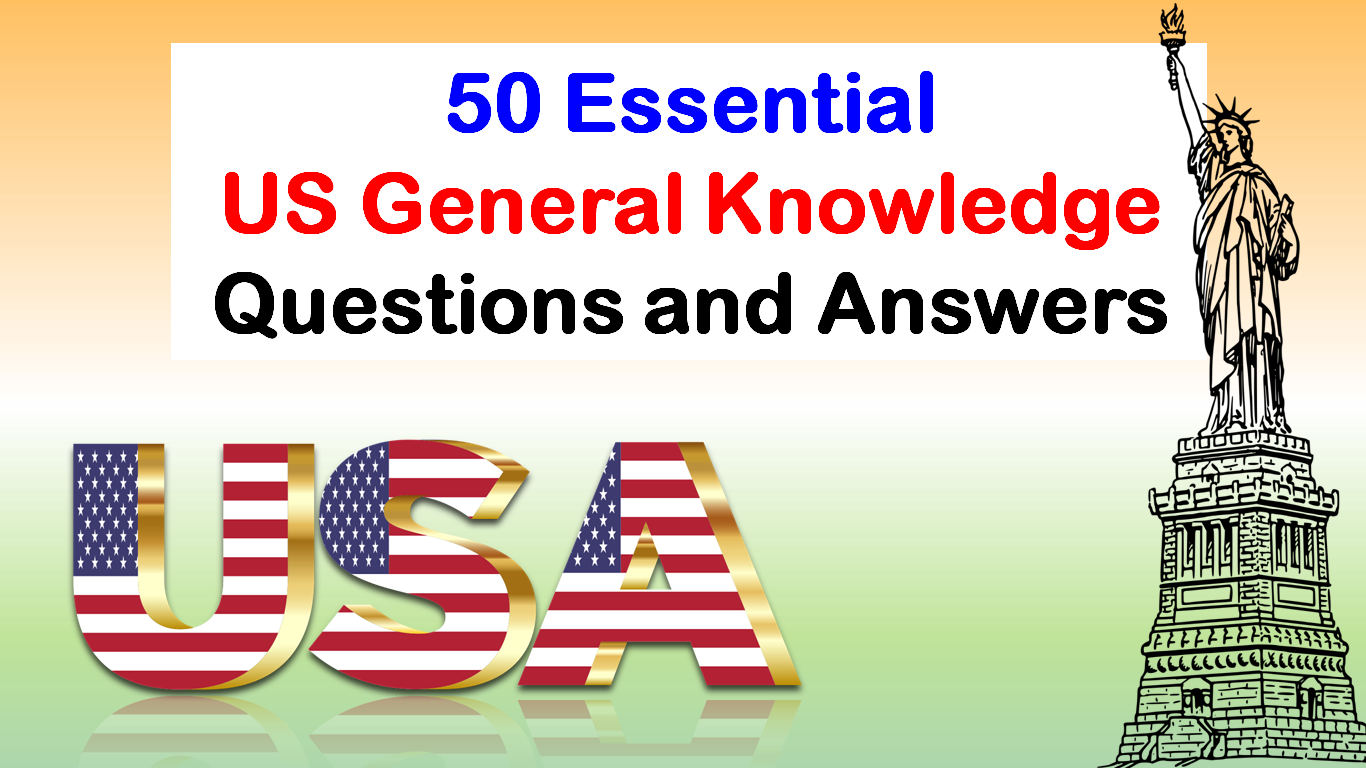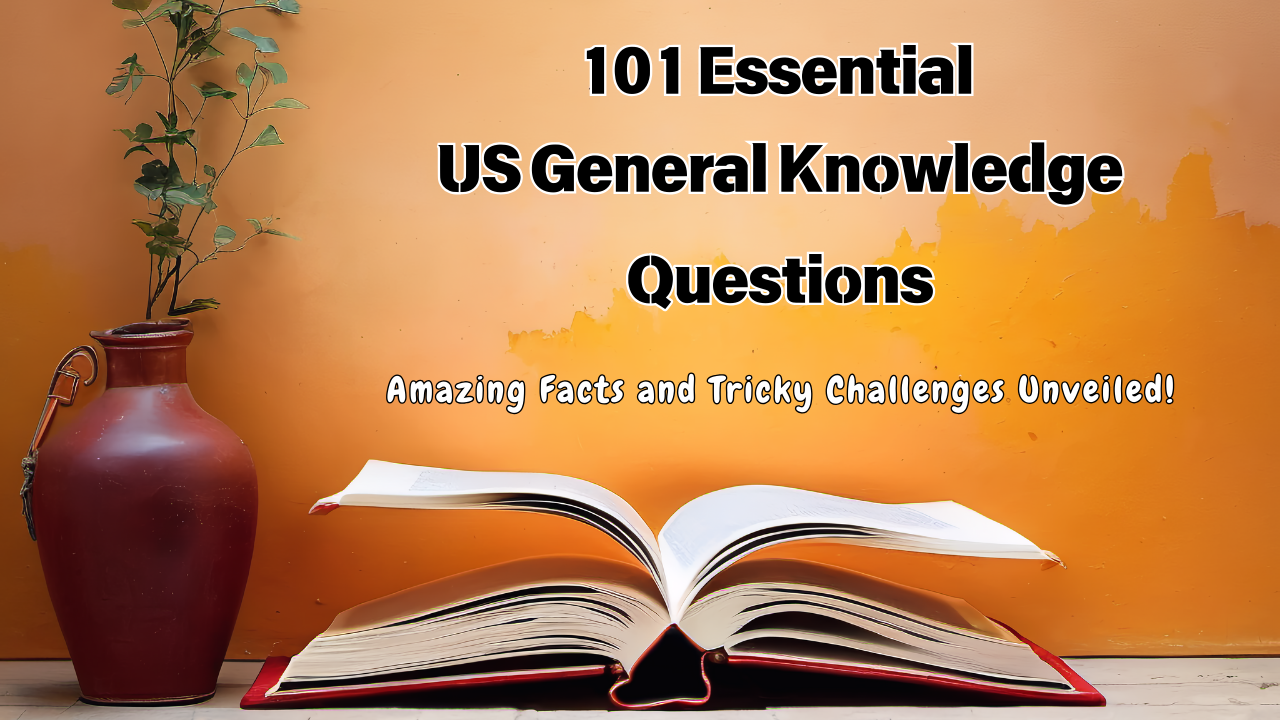
CDL General Knowledge Test: 15 Must-Know Facts to Guarantee Success
Get ready to succeed in the CDL general knowledge test! Learn 15 essential facts and tips to boost your confidence and ensure success on your journey to becoming a licensed commercial driver.
Starting a career in commercial driving opens the door to a world of opportunities, whether it’s transporting goods across state borders or operating specialty vehicles. However, before you can drive a commercial vehicle, you’ll need to pass an important hurdle: the CDL general knowledge test. This test is more than just a formality; it’s the foundation of your journey to earning a commercial driver license (CDL), which is a legal requirement for operating commercial vehicles in the United States.
The CDL general knowledge test is designed to ensure that drivers understand important concepts, including traffic laws, vehicle safety, and proper cargo handling. It’s not just about memorizing rules; it’s about developing the knowledge and mindset to drive a commercial vehicle responsibly and safely. Employers and authorities depend on CDL holders to maintain high standards of safety on the road, and this test is the first step to proving that you’re up for the challenge.
For many aspiring drivers, this test can seem intimidating because of the breadth of topics and the pressure to succeed. But you don’t have to worry about it – because you are not alone on this journey. With the right preparation and focus on key areas, passing this test is completely possible.
In this blog, we’ll walk you through 15 important facts that will not only simplify the preparation process but also boost your confidence to ace the test. Whether you’re just starting your CDL journey or refining your study methods, these insights will equip you with everything you need to guarantee success.
So, are you ready to conquer the CDL general knowledge test? Let’s get started and get you on the road to your commercial driving dreams!
Section 1: Understanding the CDL General Knowledge Test
The CDL general knowledge test is an important step for anyone aiming to drive commercial vehicles legally and safely in the United States. Whether you are interested in driving a truck, bus or other commercial vehicle, understanding the purpose, structure and requirements of this test is essential to ensure a smooth and successful start to your career.
1. What is the CDL General Knowledge Test?
The CDL general knowledge test is a comprehensive assessment that evaluates your understanding of the fundamental concepts required to drive a commercial vehicle. It is a mandatory requirement for anyone seeking a commercial driver license (CDL) and forms the basis for additional endorsements such as hazardous materials or passenger transportation.
The purpose of this test is twofold:
- To ensure that drivers are well-versed in essential safety practices, traffic laws, and operational guidelines.
- To establish a standardized benchmark for commercial driving knowledge across all states.
By passing this test, you demonstrate your readiness to assume the responsibilities of a CDL holder, including ensuring the safety of cargo, passengers, and other road users.
2. Who Needs to Take This Test?
The CDL general knowledge test is required for individuals who want to obtain a CDL to drive various categories of commercial vehicles. These include:
- Truck drivers: People who want to drive heavy vehicles such as semi-trucks or delivery trucks.
- Bus drivers: Operators of school buses, city buses, and charter buses.
- Special vehicle operators: Drivers of vehicles carrying hazardous materials, tankers, or oversized loads.
Regardless of whether you are applying for a specific endorsement (e.g., air brakes or hazardous materials), passing the general knowledge test is a prerequisite. This applies universally, whether you are applying for the first time or upgrading your existing license.
3. Test Format and Key Topics Covered
The CDL general knowledge test follows a multiple-choice format and is designed to be both comprehensive and fair, testing candidates on a wide range of topics important to safe and effective vehicle operation.
Here is what you need to know about the structure of the CDL:
- Number of questions: Generally this exam consists of 50 multiple choice questions.
- Passing score: Most states require a minimum of 80% (i.e., answering 40 out of 50 questions correctly) to pass.
- Duration: Time limits vary by state, but candidates generally have about an hour to complete the test.
The test covers several key topics, including:
1. Vehicle Safety and Inspection
- Pre-trip inspections, brake systems, and overall vehicle maintenance.
2. Traffic Laws and Regulations
- This includes rules of the road, traffic signs, right-of-way laws and speed limits.
3. Cargo Handling
- The basics of loading, securing cargo, and weight distribution.
4. Emergency Procedures
- Steps to take in case of a vehicle breakdown, accident, or dangerous situations.
5. Driving Techniques
- Handling adverse weather conditions, night driving, and defensive driving exercises.
6. Environmental Awareness
- Reducing emissions and complying with environmental safety standards.
By understanding the structure and key topics of the CDL general knowledge test, you can approach your preparation with clarity and focus. With this foundation, you’ll be better equipped to confidently face the exam and secure your CDL.
Section 2: 15 Must-Know Facts to Guarantee Success
Success on the CDL general knowledge test isn’t just about hard work – it’s about smart preparation. It’s important to understand what to study and how to understand the material. This section focuses on three preparation essentials that will get you on the right track.
A. Preparation Essentials
4. Understand the Test Requirements
Before you dive into your preparation, it’s important to fully understand the test requirements, including state-specific rules and regulations. While the core content of the CDL general knowledge test is standardized across the U.S., there are some variations based on state guidelines.
- State-specific differences: Each state Department of Motor Vehicles (DMV) or Department of Transportation (DOT) tailors its CDL test to incorporate local traffic laws and regulations. For example, speed limits, vehicle weight restrictions, and environmental requirements vary depending on where you’re applying for your CDL.
- Refer to your state’s CDL handbook: Your state-issued CDL handbook will outline specific requirements and provide information about additional topics that may appear on your test.
- Why it matters: Ignoring state-specific nuances can lead to unexpected questions on the test. Researching your study materials and aligning them with your state’s guidelines ensures you’re fully prepared.
5. Study Official CDL Manuals
The official CDL handbook issued by your state is your most important resource for preparing for the general knowledge test. It’s designed to provide all the information you need to pass, making it a must-read.
- Comprehensive coverage: The handbook includes detailed information about vehicle operation, safety practices, traffic laws, and emergency protocols — all of which are tested on the exam.
- Avoiding outdated material: Using unofficial or outdated study guides can lead to confusion. The official manual is regularly updated to reflect current laws and industry standards.
- How to use it: Break the manual into manageable sections and focus on one topic at a time. Highlight key points and take notes to help you remember.
- Pro tip: Many states offer digital versions of the DMV manual, making it easy to access it on your phone, tablet, or computer for studying on the go.
6. Practice Tests Are Your Best Friend
Taking practice tests is one of the most effective ways to prepare for the CDL general knowledge test. These tests not only familiarize you with the format and style of the questions, but also highlight areas where you need improvement.
- Replicate the actual test: Practice tests replicate the multiple-choice format of the actual CDL exam. By practicing, you’ll get a feel for the types of questions you’ll face and the best strategies for answering them.
- Build memory and confidence: Repetition helps strengthen your knowledge. With each practice test, you’ll become more comfortable with the material, making you more confident when it comes time for the real thing.
- Identify weak areas: Practice tests reveal topics where your understanding may be weak, allowing you to focus your studying on areas that need improvement.
- Accessible resources: Many online platforms offer free or low-cost CDL practice tests. Some also provide detailed explanations for each question, which can be invaluable for deepening your understanding.
Why These Preparation Essentials Matter
By focusing on understanding the test requirements, using the official CDL manual, and taking practice tests, you’ll build a solid foundation for success. These strategies ensure that you’re studying the right material in the right way, saving you time and effort while also boosting your confidence on test day.
B. Key Knowledge Areas
Mastering the CDL general knowledge test requires a solid understanding of important topics that directly relate to commercial driving. These key knowledge areas include safety, regulations, and practical skills that every commercial driver should know.
7. Vehicle Safety Standards
Safety is paramount in the commercial driving industry. As a CDL holder, you are responsible for ensuring that your vehicle operates safely on the road.
- Pre-Trip Inspection: A pre-trip inspection is a systematic check of your vehicle to identify any potential problems before you hit the road. You should inspect components such as tires, lights, mirrors, brakes, and fluid levels to make sure everything is in working condition.
- Brake System: It is essential to understand how air brakes and hydraulic brakes work. You must learn how to inspect brake systems, identify warning signs of malfunction, and respond quickly to problems.
- Hazard Management: As a driver, you must know how to safely handle hazards such as flat tires, mechanical breakdowns, and adverse weather conditions. Proactive maintenance and quick thinking are vital to minimizing risk on the road.
8. Traffic Laws and Regulations
Commercial drivers must have a thorough understanding of traffic laws, as they play a vital role in ensuring public safety and avoiding penalties.
- Right-of-Way Rules: Understanding when to give way and how to navigate intersections or merge lanes is important to prevent accidents.
- Speed Limits: Commercial vehicles often have lower speed limits than passenger cars, especially in specific areas such as highways or construction zones. It is important to know these limits to avoid violations.
- Traffic Signs and Signals: CDL drivers must be able to quickly understand road signs and signals, including weight restrictions, sharp turns, and low clearances.
9. Cargo Handling Basics
Proper cargo handling ensures the safety of both the driver and other road users. Incorrectly managed loads can lead to accidents, fines or damage to the goods.
- Securing the load: Cargo should be secured using proper straps, chains or tarpaulins to prevent it from moving during transport. Familiarize yourself with techniques such as tie-downs and tensioning systems.
- Weight distribution: Overloading or unevenly distributing loads can make the vehicle harder to control and increase the risk of accidents. Learn how to balance cargo to comply with weight regulations and maintain vehicle stability.
- Inspecting the cargo: Checking your load regularly during transport ensures everything remains safe and secure.
10. Emergency Protocols
Commercial drivers must be prepared to handle unexpected emergencies efficiently and calmly.
- Vehicle breakdown: Learn the steps to stop safely, set up a warning triangle, and call for assistance.
- Accidents: CDL drivers are trained to prioritize safety during an accident, including securing the scene, contacting emergency services, and following protocols for documenting the incident.
- Hazardous materials spills: If you are transporting hazardous materials, it is important to understand spill control and emergency procedures to minimize environmental impact and public exposure.
11. Environmental Awareness
As a commercial driver, you need to be mindful of environmental regulations and practices that promote sustainability.
- Fuel efficiency: Learn techniques such as maintaining a steady speed, avoiding excessive idling, and properly inflating tires to reduce fuel consumption.
- Emissions control laws: Be aware of federal and state emissions standards. Regular maintenance of your vehicle’s exhaust system is necessary to comply with these laws.
- Environmentally friendly practices: Drivers can contribute to sustainability by reducing waste during stops, recycling where possible, and adopting energy-efficient driving habits.
Why These Key Knowledge Areas Matter
By mastering these key areas, you are not only preparing to pass the CDL general knowledge test, but also laying the foundation for a successful and responsible career in commercial driving. These skills and insights ensure that you are prepared to meet industry standards and handle real-world challenges on the road with confidence.
C. Practical Study Tips
Preparing for the CDL general knowledge test can seem overwhelming, but the right strategies can make a significant difference. By organizing your study efforts and employing effective methods, you can increase your chances of success. Below are practical study tips that will help you prepare efficiently and confidently.
12. Create a Study Plan
A well-structured study plan is the key to staying organized and covering all the material without cramming at the last minute.
- Divide the material into manageable sections:
The CDL handbook is extensive, so break it down into smaller sections based on topics such as vehicle safety, traffic laws, and cargo handling.
Focus on one topic at a time so you don’t feel overwhelmed. For example, dedicate one day to traffic laws and another day to emergency procedures.
- Set realistic goals:
Allot specific time slots to study each section and stick to your schedule. Aim for frequent, short study sessions rather than marathon sessions to improve retention. - Track your progress:
Keep a checklist of the topics you’ve completed. Reviewing what’s left will give you a clear picture of your preparation.
13. Take advantage of online resources
The Internet offers a wealth of tools to improve your CDL test preparation. Take advantage of these resources to make your learning more accurate and gain deeper understanding.
- Recommended Websites:
- Many state DMV websites offer free practice tests and extra study materials.
- CDL-specific platforms like CDL Prep or Driving-Tests.org offer comprehensive question banks and interactive quizzes.
- Apps for On-The-Go Learning:
- Use a mobile app like CDL Prep or DMV Genie to practice questions during downtime. These apps are especially useful for quick review while traveling or during breaks.
- Videos and Tutorials:
- Platforms like YouTube have CDL test preparation channels where experienced drivers share tips and explain complex concepts visually.
- Watch videos that cover pre-trip inspections, traffic laws, and emergency procedures for a deeper understanding.
14. Join a Study Group or Class
Working together with others can make your preparation more effective and fun.
- Benefits of group learning:
- Study groups allow you to discuss challenging topics and share insights with others preparing for the same test.
- Explaining concepts to colleagues strengthens your own understanding, and you can learn helpful tips from their perspective.
- Enroll in CDL preparation classes:
- Many community colleges, truck driving schools, and online platforms offer CDL preparation courses.
- These classes provide structured learning, access to expert instructors, and opportunities to ask questions.
- Accountability and motivation:
- A group setting keeps you accountable and motivated, ensuring you stay on track with your study goals.
15. Be Confident and Calm during the Exam
Your mindset on test day can greatly impact your performance. Here are some strategies for you to help you stay calm and focused in the exam:
- Practice relaxation techniques:
- Breathing exercises, meditation, or visualization can help calm pre-test nerves. For example, take deep breaths before you start the test to reduce stress.
- Prepare the night before:
- Lightly review key points, but avoid cramming. Make sure you have all necessary documents (e.g., ID, appointment confirmation) ready for the next day.
- Get a good night’s sleep to stay alert and clear-minded during the test.
- Take your time during the test:
- Read each question carefully and avoid rushing. Remember, the test is not a race—accuracy matters more than speed.
- Follow what you know:
- If you get a difficult question, don’t let it undermine your confidence. Proceed and come back later if necessary.
Why Practical Study Tips are Important
Effective preparation doesn’t just mean knowing the material – it means studying smart and staying calm during the test. By creating a study plan, using online resources, studying in a group, and managing test-day nerves, you can prepare yourself for success on the CDL General Knowledge test and beyond.
Section 3: Additional Tips for Test Day
The test day is your chance to put all your preparation into action, so it’s important to approach it with a clear mind and a well-thought-out plan. Here are some essential tips to ensure you’re fully prepared and confident when you go to the test centre.
1. Review the Checklist for Test Day
Before you leave for the test center, double-check that you have everything you need to avoid any unnecessary stress or delays.
- Valid ID:
- Make sure you bring a government-issued photo ID, such as your driver’s license, as this is required for identification.
- Appointment confirmation:
- If you scheduled your test online or over the phone, bring a printed or digital copy of your appointment confirmation. This ensures that you won’t face any confusion at the test center.
- Additional documents:
- Some states may require other documents, such as proof of residency, your learner’s permit, or your Social Security card. Check the requirements of your state’s DMV beforehand.
- Payment method:
- If your test requires a fee, make sure you have the correct amount or a valid payment method (cash, credit card, etc.)
- Study Materials:
- Although you won’t be able to use study materials during the test, it can be beneficial to have your notes or CDL handbook on hand for a quick review before entering the test center.
Being well-prepared with the right documents eliminates unnecessary stress and allows you to fully focus on the test.
2. Arrive Early and Be Well-Rested
Timeliness and physical preparation can greatly impact your test performance.
- Plan to arrive early:
- On the day of the test, aim to arrive at the test center at least 30 minutes before your scheduled time. This gives you enough time to check in, get familiar with the environment, and calm your nerves.
- Take into account traffic, parking, or unexpected delays to ensure you don’t feel rushed or panicked.
- Get enough sleep the night before:
- A well-rested brain is more alert and focused on knowledge. This type of brain is able to retain information better. Avoid cramming late into the night, as this can leave you exhausted and reduce your performance.
- Stay hydrated and eat healthy:
- Eating a balanced meal before the test ensures you have the energy to focus. Avoid heavy, greasy food. This type of food can make you sluggish.
- Bring a water bottle to stay hydrated, but don’t drink too much of it to avoid disruptions during the test.
3. Recheck the important topics before entering the exam center
A quick review of key topics can boost your confidence and ensure the material is fresh in your mind.
- Focus on high-priority topics:
- Review areas you found challenging during your preparation, such as vehicle safety, traffic laws, or cargo handling.
- Revisit key formulas, facts, or procedures that are likely to appear on the test.
- Use flashcards or summaries:
- Flashcards or brief notes can be excellent for last-minute review. Note terms, definitions, or concepts you are less confident about.
- Don’t overload your mind:
- Keep your review light and focused. Trying to cram a large amount of information right before the test can overwhelm you and lead to confusion.
Why Preparing for the Test Day is Important
Your performance on the CDL general knowledge test is affected not only by your study efforts, but also by how well you handle test day. By being organized, arriving early, and reviewing important topics, you’ll be in the best position to succeed. Small steps like these ensure that your hard work will pay off and you’ll be one step closer to getting your commercial driver license.
The CDL general knowledge test is more than just a requirement – it’s your gateway to a satisfying career in commercial driving. With proper preparation and a clear understanding of the 15 must-know facts, you’ll not only pass the test but also lay the groundwork for a safe and successful trip on the road.
The Importance of Preparation
Success in any field starts with preparation, and getting a CDL is no exception. The key facts covered in this guide – from vehicle safety standards to emergency protocols – highlight the critical knowledge areas you need to master. By breaking down your preparation into manageable steps, taking advantage of the right resources, and adopting effective study habits, you can take the test with confidence and ease.
Start Your Journey Today
Don’t let uncertainty or procrastination get in your way. Whether you’re just breaking into the commercial driving industry or ready to take the next step in your career, now is the perfect time to start preparing for the CDL General Knowledge Test. With focused effort every day, you’re getting closer to achieving your goals.
Call-to-Action
Take steps to begin your CDL preparation today:
- Download the official CDL manual:
- This comprehensive guide, issued by your state’s DMV, is your ultimate resource for understanding the test content.
- Take a free practice test:
- Online practice tests are a great way to assess your knowledge, identify areas of improvement, and build your confidence.
The path to earning a CDL begins with small, deliberate steps. With determination, preparation, and the right resources, you are well-prepared to pass the test and begin your professional driving career. Don’t wait, today is the day you take the first step towards success!








Leave a Reply